
Evidence First
MDRC
Policymakers talk about solutions, but which ones really work? Join Therese Leung as she talks with MDRC researchers about the best evidence available on education and social programs that serve low-income peop
- 13 minutes 19 secondsEconomic Mobility Through Remote Sector Training: A Conversation with Edith Yang
Sector-based training programs prepare people for jobs in specific industries where there is strong local demand and an opportunity for career advancement. Several models for technology jobs have been found to be effective in improving long-term earnings for workers with low incomes. But for many people, the programs are too expensive and too far from home.
With support from the $100-million Google Career Certificates Fund, Social Finance is leading an initiative that will allow training providers to better support 20,000 learners in getting industry-recognized certificates that can lead to better wages.
The providers combine Google Career Certificates, which offer online instruction in sector-specific skills, and outcomes-based loans, in which learners are only required to pay for training and related costs if they find jobs above a certain income threshold. Learners also receive supportive services, such as living stipends or childcare assistance, and career-related guidance.
MDRC’s study will examine how training providers make use of online training courses and financing, how learners experience the programs, and how learners fare in the labor market.
In this episode, Leigh Parise talks with Edith Yang, project director and Senior Research Associate at MDRC, about the initiative and the research questions MDRC is hoping to answer.
24 January 2025, 10:02 pm - 34 minutes 38 secondsFines and Fees in Jefferson County, Alabama: A Conversation with Leah Nelson and Sarah Picard
Every year, courts across the United States impose millions of dollars in fines, fees, and restitution charges on people for traffic violations, misdemeanors, and felonies. In theory, these assessments are intended to punish and deter unlawful behavior, compensate victims for financial losses, and raise money for the justice system. However, they don’t often accomplish those goals; instead, research suggests they erode community trust in law enforcement and saddle community members with debt many will never be able to pay.
The Center for Criminal Justice Research at MDRC partnered with the Alabama Appleseed Center for Law and Justice, Alabama’s Tenth Judicial Circuit Court, and the Center for Court Innovation on the Jefferson County Equitable Fines and Fees Project (Project JEFF) to better understand the impact that court debts have on citizens of Jefferson County, Alabama.
In this episode, Leigh Parise is joined by Sarah Picard, the Director of the Center for Criminal Justice Research at MDRC, and Leah Nelson, the then-Research Director at Alabama Appleseed Center for Law and Justice, to discuss some of the early findings of Project JEFF. The pair introduce the history of fines and fees, share the perspectives of those who are assessed court fines or fees; and describe the disproportionate impact of court debt across racial groups in Jefferson County.
3 December 2024, 10:07 pm - 17 minutesSupporting College Students in Rural Areas
Both college-going and college completion rates are far lower in rural areas than in other geographical settings. To learn what works to help rural students enroll in and complete college, MDRC, supported by the Institute of Education Sciences (IES), has launched the National Rural Higher Education Research Center. The center will work with college systems to conduct eight research studies in two regions: the South and the Mountain West.
In this episode, Leigh Parise talks with Alyssa Ratledge, research associate at MDRC, about the research questions the Center will address in response to the needs of rural practitioners and policymakers.
13 November 2024, 10:34 pm - 24 minutes 25 secondsScaling Up High-Dosage Tutoring: Early Lessons from the Personalized Learning Initiative
Many states and school districts are eager to expand high-dosage tutoring programs, a proven way to accelerate student learning by providing personalized instruction in small group settings several times a week. But there are challenges to getting these programs successfully off the ground, like recruiting tutors in a tight labor market, fitting sessions into already packed school days, and ensuring consistent student participation.
To help practitioners address these challenges, the University of Chicago's Education Lab and MDRC launched the Personalized Learning Initiative (PLI) in 2021. PLI is supporting and studying the expansion of high-dosage tutoring programs in school districts across the country.
In this episode, Leigh Parise talks with Barbara Condliffe, a senior research associate at MDRC, who's leading the implementation research on PLI, about the early lessons from the project.
17 September 2024, 9:04 pm - 36 minutes 10 secondsPromoting Equity in Developmental Education Reform: A Conversation with Nikki Edgecombe and Michael Weiss
Developmental education, also known as remedial education, refers to courses that some entering college students will have to take if they are deemed unprepared for college-level courses. However, studies have shown that developmental education can actually hinder students’ progress in college. Additionally, students of color, adults, first-generation students, and those from low-income backgrounds are disproportionately placed in developmental education programs, so there’s a lot of interest among policymakers, college practitioners, and researchers in reforming developmental education programs to address these challenges and support more equitable outcomes for students.
As part of MDRC’s 50th anniversary celebration, this episode of Evidence First features MDRC’s longtime partner the Community College Research Center, or CCRC. In 2014, MDRC and CCRC launched the Center for the Analysis of Postsecondary Readiness, or CAPR, to research the effectiveness of developmental education reforms and to understand their implications for equity.
In this episode, Leigh Parise talks with Nikki Edgecombe, a senior research scholar at CCRC who leads CAPR, and Michael Weiss, a senior fellow in postsecondary education at MDRC, about what has been learned about promoting equity in developmental education reform.
3 July 2024, 3:00 pm - 32 minutes 52 secondsBuilding Impact Through Partnership: A Conversation About Per Scholas and MDRC
Sector-focused employment programs aim to improve the economic mobility of people with low incomes by training them for quality jobs in sectors that have strong local demand and opportunities for advancement. By partnering with local employers, these programs provide them with a skilled and able workforce.
As part of MDRC’s 50th anniversary celebration, this episode of Evidence First features MDRC’s longtime partner Per Scholas, a leading national nonprofit offering training and employment services focused on specific employment sectors. MDRC’s evaluation has confirmed that Per Scholas offers a highly effective training model.
Leigh Parise talks with Tamara Johnson, Chief of Staff at Per Scholas; Shondra Tobler, Senior Director of National Admissions at Per Scholas; and Donna Wharton-Fields, a senior fellow at MDRC. They discuss MDRC’s long-term research partnership aimed at helping Per Scholas improve its program and expand its reach.
25 April 2024, 7:21 pm - 32 minutes 25 secondsTraining Workers When Employers Hire Based on Skills: Lessons from Connecticut and Virginia
As the cost of higher education climbs, skills-based hiring has gained traction. It’s a labor market trend in which employers hire based on applicants’ skills, with the understanding that degrees are not the only way to acquire competencies.
In a follow-up to an earlier episode on skills-based hiring, Rachel Rosen, who leads MDRC’s Center for Effective Career and Technical Education, speaks with two guests: Kelli-Marie Vallieres, Connecticut’s Chief Workforce Officer who leads the state’s Office of Workforce Strategy, and Elizabeth Creamer, Vice President of Workforce Development for the Community College Workforce Alliance, which is the workforce development division of Brightpoint and Reynolds community colleges, within the Virginia Community College System.
They discuss which sectors are experiencing an uptick in skills-based hiring in Connecticut, what non-degree programs are offered in Virginia, and whether skills-based hiring can promote equity.
15 February 2024, 3:42 am - 23 minutes 25 secondsImplementing an Evidence-Based and Domain-Specific Pre-K Curriculum: A Conversation with Cheryl Ohlson and Michelle Maier
Most pre-K classrooms use a whole-child approach to educational curricula, which focuses on the broad development of children’s academic skills. By contrast, domain-specific curricula focus more on specific areas of learning, such as math, literacy, or science. MDRC has partnered with the District of Columbia Public Schools (DCPS) to implement a new domain-specific curriculum in its schools.
In this episode, Leigh Parise speaks with Cheryl Ohlson, DCPS deputy chief of early childhood education, and Michelle Maier, MDRC senior associate, to outline their domain-specific curriculum strategy and to explain some of the ups and downs of their ongoing implementation in pre-K programs across Washington, DC. They explain how domain-specific curricula intersects with other important trends in pre-K education, including the importance of play and of providing developmentally appropriate instruction. Ohlson also discusses how teachers were trained to teach domain-specific curricula and addresses some of the challenges of implementing the initiative at scale.
22 January 2024, 8:51 pm - 24 minutes 30 secondsWhen Employers Hire Based on Skills: A Conversation with Matt Sigelman
As the cost of higher education climbs, skills-based hiring has gained traction. It’s a labor market trend in which employers hire based on applicants’ skills, with the understanding that degrees are not the only way to acquire competencies.
Skills-based hiring has the potential to increase equity in the hiring process, providing avenues to socio-economic mobility for historically marginalized populations. However, there are also questions about whether the movement could demotivate students from pursuing two- or four-year degrees that may be more transferable to other jobs.
To learn more about skills-based hiring across education and workforce training domains, Leigh Parise talks with Matt Sigelman, President of the Burning Glass Institute, which studies economic and workforce trends.
21 December 2023, 9:22 pm - 24 minutes 54 secondsLessons about Tutoring and Addressing Learning Loss from Reading Partners
Many schools are expanding tutoring services and personalized instruction to address learning loss caused by the pandemic. This episode features Reading Partners, a successful national nonprofit that mobilizes community volunteers to provide one-on-one tutoring to students who struggle with reading in under-resourced elementary schools. MDRC has been working with Reading Partners for nearly 15 years to help document and improve the program’s effectiveness. MDRC’s rigorous evaluation of Reading Partners found that its program boosted three different measures of reading proficiency, including reading comprehension, for second- to fifth-graders.
In the first episode of a series celebrating MDRC’s 50th anniversary and our longtime collaborators, join Leigh Parise as she talks with Dean Elson, Chief Knowledge Officer at Reading Partners, and Robin Jacob, a Research Professor at Institute for Social Research at the University of Michigan and Co-Director of the Youth Policy Lab. Jacob helped lead MDRC’s evaluation of Reading Partners and is currently studying their distance learning model, Reading Partners Connects. Elson and Jacob discuss MDRC’s study of Reading Partners, how to get volunteers to teach reading effectively, and how technology will continue to play a role in tutoring.
8 December 2023, 7:06 pm - 23 minutes 24 secondsAdapting a Wraparound Student Support Program for College Students in Rural Areas: A Conversation with Crystine Miller and Alyssa Ratledge
Montana 10 is a scholarship program offered by the Montana University System that offers wraparound academic, social, and financial supports to students from rural areas, first-generation college students, and Native American students. MDRC is partnering with the Montana University System on an evaluation of Montana 10..
In this episode, Leigh Parise speaks with Crystine Miller, Director of Student Affairs and Student Engagement in the Montana University System, and Alyssa Ratledge, a Research Associate in Postsecondary Education at MDRC, about the Montana 10 evaluation and its potential value to the field of higher education research. The pair describes the unique challenges of conducting an evaluation in a mostly rural higher education system. They also highlight what questions the evaluation is hoping to answer about rural students. For example, does the choice between returning to one’s hometown after graduating and moving away to pursue employment carry a special weight for students from rural backgrounds?
To learn more about the Montana 10 project and some of the barriers facing rural students in postsecondary education, check out this recent commentary by Ratledge in The Hechinger Report.
1 November 2023, 6:23 pm - More Episodes? Get the App
Your feedback is valuable to us. Should you encounter any bugs, glitches, lack of functionality or other problems, please email us on [email protected] or join Moon.FM Telegram Group where you can talk directly to the dev team who are happy to answer any queries.
 On the Evidence
On the Evidence
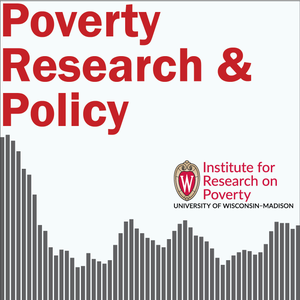 Poverty Research & Policy
Poverty Research & Policy
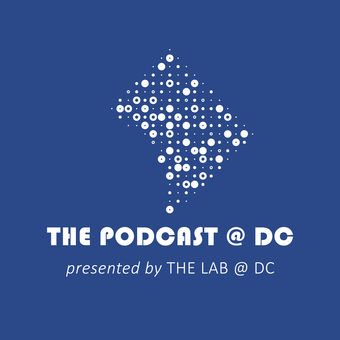 The Podcast @ DC
The Podcast @ DC
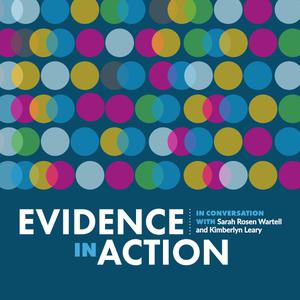 Evidence In Action
Evidence In Action
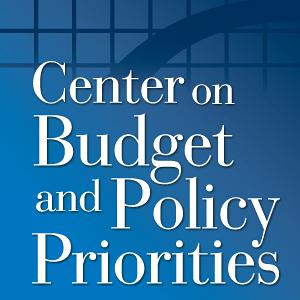 Center on Budget and Policy Priorities
Center on Budget and Policy Priorities
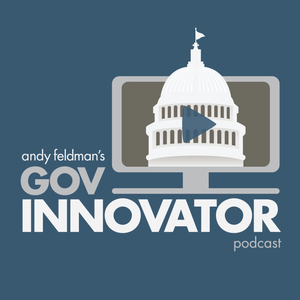 Gov Innovator Podcast
Gov Innovator Podcast